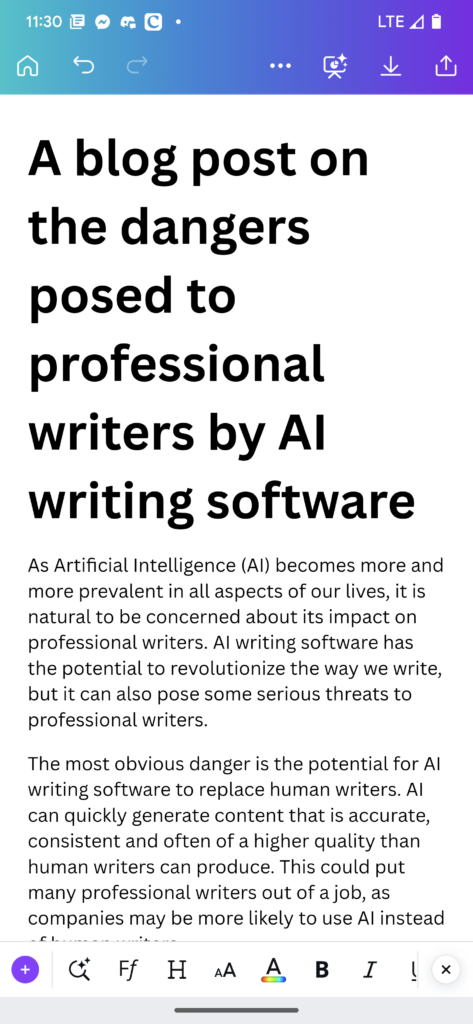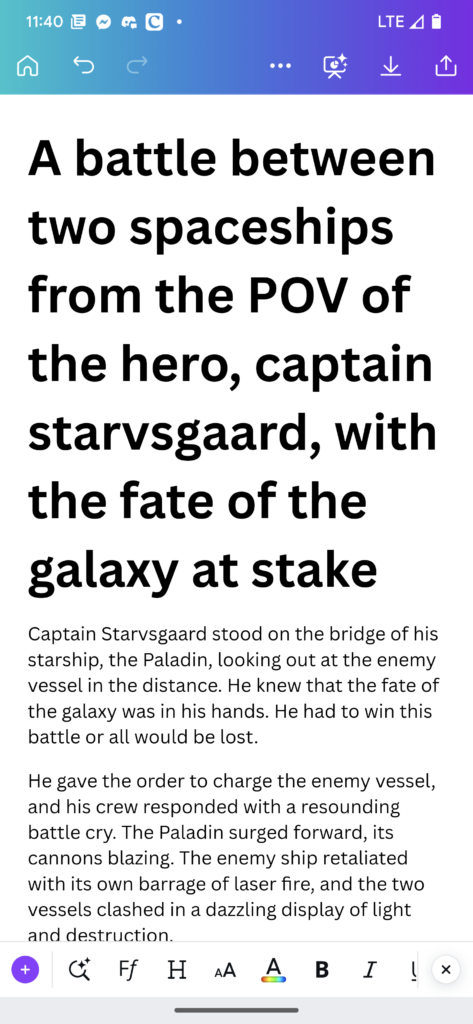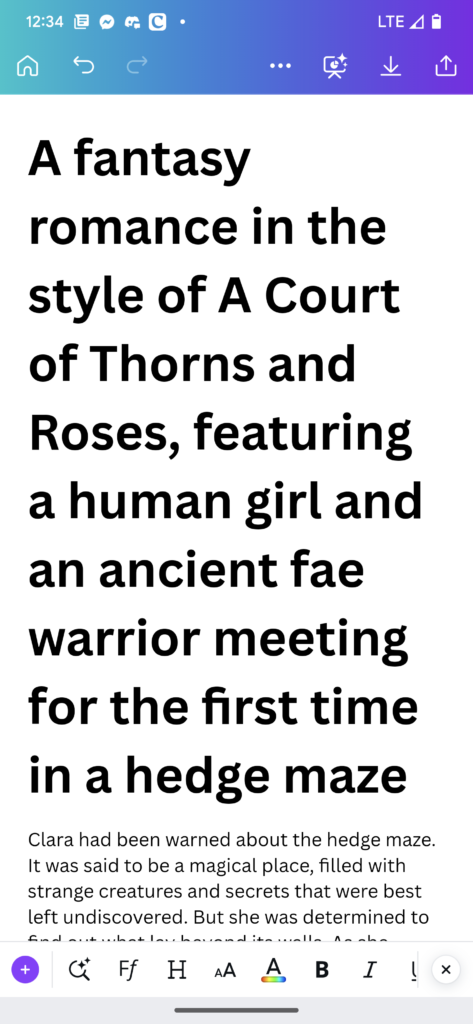As Artificial Intelligence (AI) becomes more and more prevalent in all aspects of our lives, it is natural to be concerned about its impact on professional writers. AI writing software has the potential to revolutionize the way we write, but it can also pose some serious threats to professional writers.
The most obvious danger is the potential for AI writing software to replace human writers. AI can quickly generate content that is accurate, consistent and often of a higher quality than human writers can produce. This could put many professional writers out of a job, as companies may be more likely to use AI instead of human writers.
Another danger that AI poses to professional writers is the potential for mass produced, generic content. AI writing software can create content that is accurate and consistent, but it can lack creativity and originality. If AI writing software is used in place of human writers, the content produced may be of a lower quality and lack the creativity and originality that human writers bring to the table.
Finally, AI writing software can be used to manipulate the truth. AI can be programmed to generate content that is biased or even false. This could lead to a dangerous situation where readers are exposed to inaccurate information.
Overall, AI writing software has the potential to revolutionize the way we write, but it also poses some serious threats to professional writers. Companies should be aware of the potential dangers that AI poses to professional writers and should take steps to ensure that human writers are not replaced by AI.
The title of this blog post is the prompt that I entered into Canva’s new “Magic Write” feature. The content above the separator is what the AI software produced for me in literal seconds. I did not edit it or tweak it any way. All I created in my own was the original prompt.

I tried it with fiction, as well, using the prompt, “A battle between two spaceships from the POV of the hero, captain starvsgaard, with the fate of the galaxy at stake”:
Captain Starvsgaard stood on the bridge of his starship, the Paladin, looking out at the enemy vessel in the distance. He knew that the fate of the galaxy was in his hands. He had to win this battle or all would be lost.
He gave the order to charge the enemy vessel, and his crew responded with a resounding battle cry. The Paladin surged forward, its cannons blazing. The enemy ship retaliated with its own barrage of laser fire, and the two vessels clashed in a dazzling display of light and destruction.
The Paladin was smaller and faster, and it was able to dodge most of the enemy’s shots. But each time it returned fire, it was met with an even more powerful counterattack. It was a desperate fight, and it seemed like it could go either way.
But in the end, the Paladin emerged victorious. The enemy ship was destroyed, and the fate of the galaxy was saved. Captain Starvsgaard and his crew cheered in triumph. It was a moment of victory that they would never forget.
I added the words, “with dialogue between the captain and first mate” and ran it again:
Captain Starvsgaard stood on the bridge of the Empire’s flagship, the Phoenix, and looked out into the vastness of space. He could feel the tension in the air as the other ship, the Dark Star, loomed into view. The fate of the galaxy was in his hands, and he knew that only one of these ships would survive the battle.
“All hands, prepare for battle,” he said, his voice firm and strong. “We must not fail.”
The crew scrambled to their stations, and the Phoenix began to move into position. Captain Starvsgaard glanced at his first mate, Lt. Johansson.
“This is it,” he said calmly. “Let’s show them what we’re made of.”
Lt. Johansson nodded, a determined look on her face. “Yes, sir. We will not fail.”
The two ships closed in on each other, and soon the battle was raging. Laser blasts flew through the air, and the two ships rocked and shook from the impact of the explosions.Captain Starvsgaard watched from the bridge, his hands gripping the sides of his chair tightly. He could feel the energy of the battle, and he knew that this was a battle for the fate of the galaxy.
“Fire at will!” he shouted, as the Phoenix fired its lasers, causing the Dark Star to shudder. “We will not be defeated!”
The battle raged on, and soon the Dark Star was in ruins, the crew surrendering. Captain Starvsgaard smiled, knowing that they had won.
He turned to Lt. Johansson. “Well done, Lt. We have saved the galaxy.”
Lt. Johansson smiled back, her eyes bright with pride. “Yes, sir. We have.”

I think what I find the most worrying about these results is the way that the artificial intelligence filled in gaps in the details. I didn’t provide a name for the first mate or the ships. I didn’t say what kind of dialogue I wanted, I just said “dialogue.” Yet from those very simple prompts I got something that isn’t up to my standards for publication, but is light years ahead of some of the things currently being published.
AI generated text first pinged my scam radar when Facebook ads for a service meant to boost author marketing made AI generated text a selling point: pay for our service and you will be able to create more blog content and more social media content without sacrificing time that you could be using to write your books. Since I’m currently watching all of my artist friends beg people not to use fantasy portrait generators on social media that are so sloppy in their art theft as to leave the original artists’ signatures visible in the AI generated final product, I decided that this was something I should keep my eye on.
Just two weeks later, an author on TikTok showed up on my FYP extolling the virtues of AI writing software. It was boosting her word count so much faster. Helping her break her writing block. And there was absolutely no thought, at least, in the video, as to the impact or ethics of using AI generated content in your published work.
The comments on the video were all rapture. People discussed how this could be used for world building (based on the excerpts above, I’m thinking the answer to that is “not effectively”), for writing newsletter entries, for taking care of scenes you were having trouble with or were simply bored of and wanted to get past in your manuscript.
In other words, every single author in those comments was excited about the new ways they were going to defraud their readers.
Publishers and indie authors have already been caught using AI generated images on covers. Currently, Harper Collins is still on strike and unwilling to cave to such unreasonable demands as ” please pay us” and “we’d like it if you would hire some not-white people.” So far in all of my experiments that I’ve run with AI generated text, the prose has been technically clean, meaning there is some type of editing brain happening in the artificial intelligence. Traditional publishing won’t need authors or editors moving forward. This current strike might be the last one we see in the industry; there simply won’t be humans to object to unethical practices in the home offices.
It didn’t surprise me to see that most of the authors celebrating AI generated text without a single thought as to the long-term consequences were indie authors. Write faster, cleaner, with minimum effort is awfully attractive to a writer who only cares about generating book after book “for the algorithm,” with quality control as an afterthought. The potential for success and profit as a self-published author has attracted that wrong sort of “writer” into indie circles, creating pockets of authors who view their work as a craft and not a cheap product, and pockets of authors who are constantly looking to make a quick buck, for whom creating rich and interesting stories is the chore they would most like to eliminate from their writing career.
When it comes to AI generated text, the latter will profit from the work of the former. When I entered those prompts into Canva’s Magic Write feature, it wasn’t an imagination behind those words. It was a memory of millions of pages of content, billions of already written words that were created by hundreds of thousands of actual human brains through hard work and true inspiration. Hard work and true inspiration that get-rich-quick, rapid fire indies and traditional publishing houses can’t produce on their own, either.
Now, they’re one giant leap closer to cutting out the human element entirely and profiting on plagiarism in a bigger, bolder way than they already do. Every sentence in that AI generated content came from a human brain. It was merely collected and organized, without proper credit or citation, into a marketable product. The writers who did the actual work? Who cares about them?
It will be interesting to see how far AI generated text infiltrates fiction writing. All it will really take is one viral sensation that ” gets people back into reading” and the game is over.

The usual “a rising tide” argument will be made by the “support your fellow authors, you jealous hater!” crowd. I’m curious to see which big name author will get caught using AI first. No doubt, their Teflon status will create overwhelming public support from fellow authors who’ll enthusiastically champion a cause that will cost them their jobs, just so long as they can stay in favor with whoever the reigning monarch of the industry is at the time. Whether readers deserve better quality for their money has never been a concern for publishers and indie fast-profit seekers, anyway, and it certainly won’t be a factor now.
We will see the “just a fast writer” defense, so often employed to deny that authors publishing five to six books a month are doing so with the help of ghost writers, plastered all over social media. And everyone will become a legal expert in copyright law and plagiarism in order to silence critics. As long as you conflate the concepts of legality and morality to obfuscate the issue, anyone can be absolved of outright theft if they’re in with the right crowd. Being able to blame a computer all but guarantees the ethical arguments against plagiarism will be drowned out with cries of “jealousy!”
If I sound bleak here, it’s because I’m a realist with far too much experience in the industry to believe that AI text is going to take the writing community anywhere good. The playbook for defending unethical actions within the writing community has been revised to perfection in our age of social media; the perfect spin for the deceptive use of this groundbreaking technology already exists.
Now, all there is is to wait and watch everything I’ve just predicted play out.
